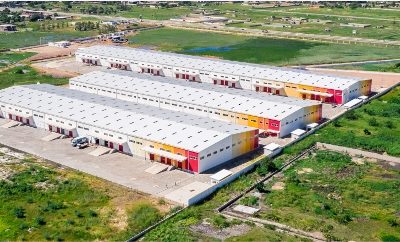The Nigerian Communications Commission (NCC) has made public the official ‘guidelines for the approved Commercial use of IPv6, the ISM frequencies in Nigeria employing the Wi-Fi technology’ in order to ensure rapid expansion of services and accelerated increase in Internet penetration.
By Aanuoluwa Omotosho and Oluwatobi Opusunju
According to the commission, “the main objectives of this set of guidelines is to ensure interference-free operation by all users of the band and to ensure that a guaranteed grade of service is available to the subscribers through established quality of service benchmarks and consumer code of practice.”
IPv6 is the next generation IP protocol. ‘It was designed to account for the future growth of the Internet, with an available pool of 340 trillion, trillion unique IP addresses. Momentum for IPv6 deployment is increasing globally as IPv4 addresses become scarce. Around the world, there are efforts to increase broadband penetration. More smart phones and network-ready devices are entering the market, and the number of Internet users is steadily increasing.’
The new NCC guidelines open the Nigerian market for operators to deploy infrastructures that would aid the speedy adoption of Internet Protocol version Six, (IPv6).
The NCC further reiterated its IPv6 roadmap at the just ended three-day 2017 International Workshop on IPv6. The event was organised in Lagos by the Association of Telecommunication Companies of Nigeria (ATCON) in collaboration with AFRINIC, the internet numbering registry for Africa.
Executive Vice Chairman/CEO of the NCC, Professor Umar Danbatta, in his deliberations on ‘The strategic and economic relevance of IPv6 to drive the next frontier of Nigeria ICT Industry and the Nigerian Communications Commission’s (NCC) policy direction towards its implementation’ said:
“In view of the strategic and economic relevance of IPv6 implementation, and the NCC’s plan to boost Internet infrastructure, the Commission as the main driver of IPv6 migration will: develop regulatory guideline for IPv6 deployment over the ISPs and MNOs networks; develop a policy framework/roadmap for network migration; Prepare detailed plans, strategies and guidelines as a result of this Roadmap to enable implementation at all levels.”
The NCC’s published guidelines officially recognises the limitations of IPv4 and the need for countries and operators to leverage IPv6 to expand the portfolio of ICT services for citizens as many countries have already just like the UAE which IPv6 adoption approach acknowledges that:
“A supply of global IP addresses larger than the currently available pool of IPv4 addresses is necessary to maintain the sustainable, long-term development of a global and open Internet. The development of technologies such as 4G, smart cities and the Internet of Things require address space at an ever-increasing rate.
“The explosive growth of mobile-only Internet access, which sees voice, messaging and data delivered through IP-based services, will only increase the demand for IP addresses. IPv6 will satisfy this demand, and sustain future business growth.”
Speaking on the limitations of IPv4, Prof. Danbatta represented by Engineer Haru Alhassan, Director, New Media and Information Security at the Commission, said it is a more sustainable solution that can deliver extensive opportunities for the future of the Internet economy, as compared to the IPv4 Network Address Translation (NAT).
In agreement with the NCC, President of ATCON, Olusola Teniola remarked that “majority of ATCON members networks are not IPv6 compatible yet, and this poses a threat to Nigerian ICT development…. The direct implication of this proposed move by ATCON is to widen the market and accelerate the adoption and implementation for the products of the industry.































